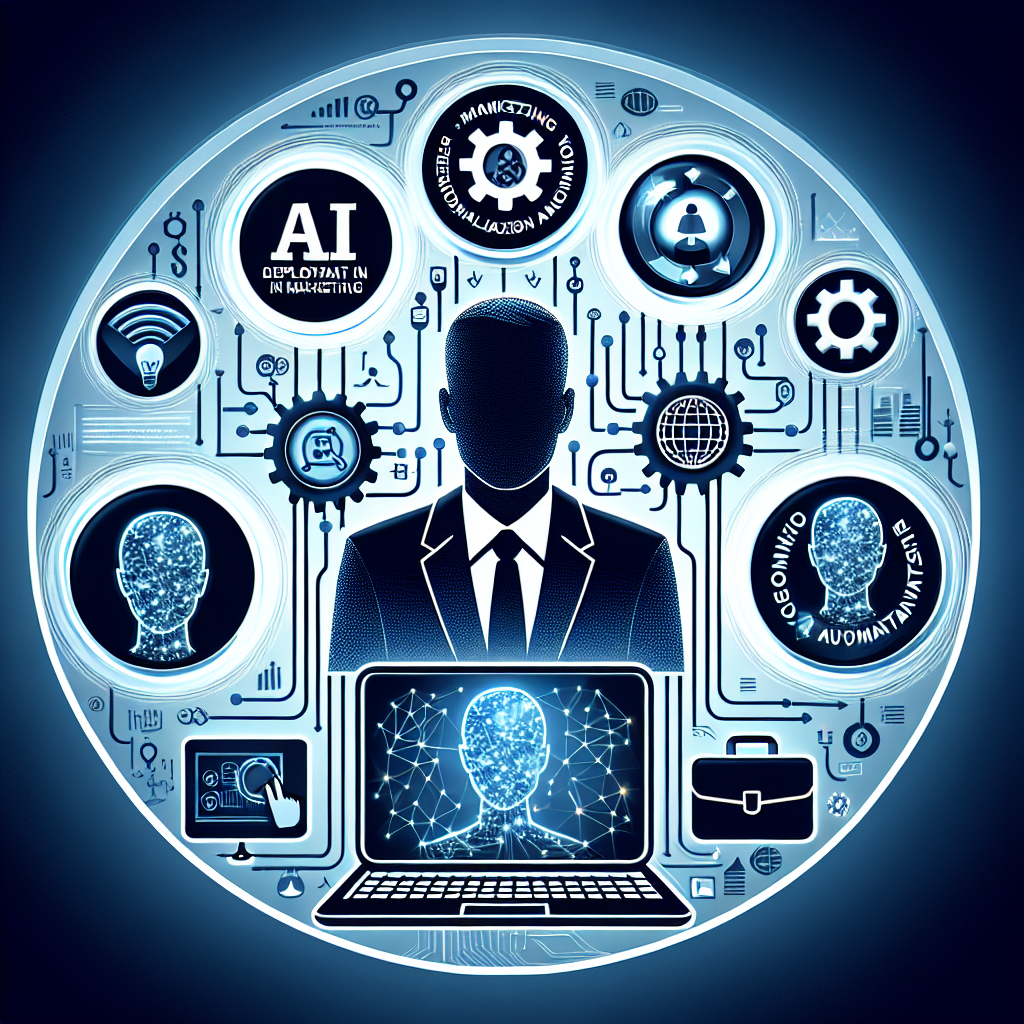In recent years, artificial intelligence (AI) has become increasingly prevalent in the field of marketing. With its ability to analyze vast amounts of data and make intelligent decisions, AI has revolutionized the way companies interact with their customers. Two key areas where AI has had a significant impact in marketing are personalization and automation.
Personalization
Personalization in marketing refers to the practice of tailoring marketing messages and content to individual consumers based on their preferences, behavior, and demographics. AI has made personalization more effective and efficient by enabling marketers to analyze large volumes of data and create more personalized experiences for their customers.
One of the key ways AI is used for personalization is through recommendation engines. These algorithms analyze a customer’s past behavior, such as their browsing history or purchase history, to recommend products or services that are likely to be of interest to them. By using AI-powered recommendation engines, companies can increase their sales and customer satisfaction by providing customers with relevant and personalized recommendations.
Another way AI is used for personalization is through predictive analytics. Predictive analytics uses AI algorithms to forecast future trends and behaviors based on historical data. Marketers can use predictive analytics to anticipate customer needs and preferences, allowing them to create personalized marketing campaigns that are more likely to resonate with their target audience.
AI is also used for personalization in email marketing. AI-powered tools can analyze customer data to create personalized email campaigns that are tailored to each individual recipient. This leads to higher open and click-through rates, as customers are more likely to engage with content that is relevant to them.
Automation
Automation in marketing refers to the use of AI-powered tools to automate repetitive tasks, such as sending emails, managing social media accounts, and analyzing data. By automating these tasks, marketers can save time and resources, allowing them to focus on more strategic initiatives.
One of the key benefits of automation in marketing is the ability to scale campaigns more effectively. AI-powered tools can analyze vast amounts of data quickly and efficiently, allowing marketers to create more targeted and effective campaigns at scale. This leads to improved ROI and better overall marketing performance.
Another benefit of automation in marketing is the ability to personalize content at scale. AI-powered tools can analyze customer data to create personalized content for each individual customer, without the need for manual intervention. This leads to more relevant and engaging content for customers, driving higher levels of engagement and loyalty.
AI-powered automation tools can also improve the efficiency of marketing workflows. By automating repetitive tasks, marketers can streamline their processes and reduce the risk of human error. This leads to faster campaign execution and better overall performance.
FAQs
Q: How can AI help marketers personalize their campaigns?
A: AI can help marketers personalize their campaigns by analyzing customer data to create more targeted and relevant content, such as personalized recommendations and email campaigns.
Q: What are some examples of AI-powered tools for marketing automation?
A: Some examples of AI-powered tools for marketing automation include customer relationship management (CRM) systems, email marketing platforms, and social media management tools.
Q: How can AI improve the efficiency of marketing workflows?
A: AI can improve the efficiency of marketing workflows by automating repetitive tasks, such as data analysis and content creation, allowing marketers to focus on more strategic initiatives.
Q: What are the benefits of using AI for personalization and automation in marketing?
A: The benefits of using AI for personalization and automation in marketing include increased sales, higher customer satisfaction, improved ROI, and faster campaign execution.
In conclusion, AI deployment in marketing has transformed the way companies engage with their customers. By leveraging AI for personalization and automation, marketers can create more targeted and relevant campaigns that drive higher levels of engagement and loyalty. As AI continues to evolve, its role in marketing will only become more important, helping companies stay competitive in an increasingly data-driven and personalized marketing landscape.

